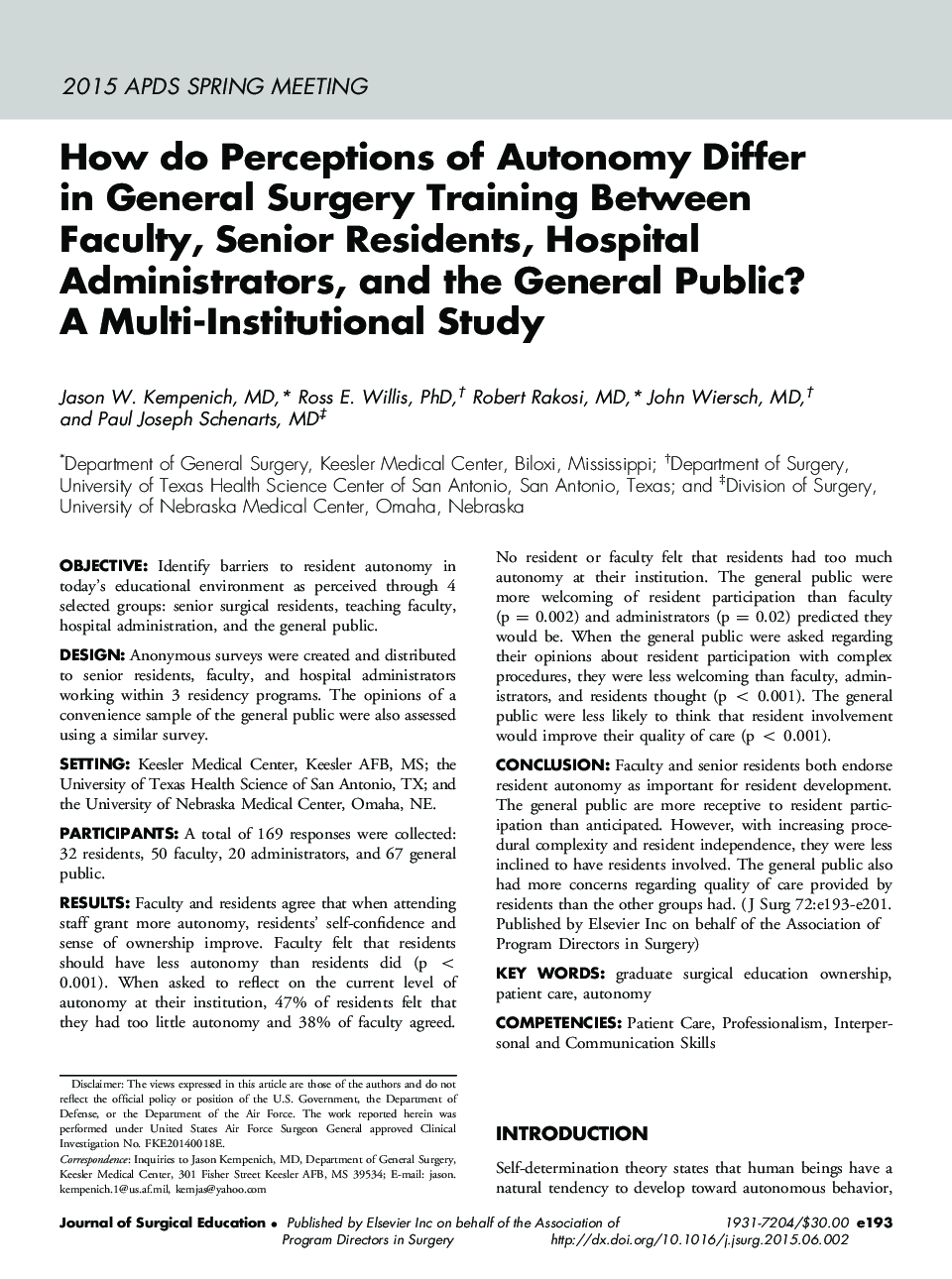| Article ID | Journal | Published Year | Pages | File Type |
|---|---|---|---|---|
| 4297458 | Journal of Surgical Education | 2015 | 9 Pages |
ObjectiveIdentify barriers to resident autonomy in today’s educational environment as perceived through 4 selected groups: senior surgical residents, teaching faculty, hospital administration, and the general public.DesignAnonymous surveys were created and distributed to senior residents, faculty, and hospital administrators working within 3 residency programs. The opinions of a convenience sample of the general public were also assessed using a similar survey.SettingKeesler Medical Center, Keesler AFB, MS; the University of Texas Health Science of San Antonio, TX; and the University of Nebraska Medical Center, Omaha, NE.ParticipantsA total of 169 responses were collected: 32 residents, 50 faculty, 20 administrators, and 67 general public.ResultsFaculty and residents agree that when attending staff grant more autonomy, residents’ self-confidence and sense of ownership improve. Faculty felt that residents should have less autonomy than residents did (p < 0.001). When asked to reflect on the current level of autonomy at their institution, 47% of residents felt that they had too little autonomy and 38% of faculty agreed. No resident or faculty felt that residents had too much autonomy at their institution. The general public were more welcoming of resident participation than faculty (p = 0.002) and administrators (p = 0.02) predicted they would be. When the general public were asked regarding their opinions about resident participation with complex procedures, they were less welcoming than faculty, administrators, and residents thought (p < 0.001). The general public were less likely to think that resident involvement would improve their quality of care (p < 0.001).ConclusionFaculty and senior residents both endorse resident autonomy as important for resident development. The general public are more receptive to resident participation than anticipated. However, with increasing procedural complexity and resident independence, they were less inclined to have residents involved. The general public also had more concerns regarding quality of care provided by residents than the other groups had.
